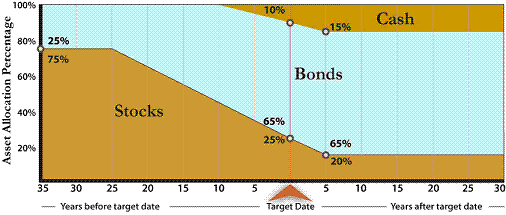|
|
|
Empathy and Communication by a Retirement Plan Provider Goes A Long Way.
It goes way far.
 They say that game theory is the study of strategic decision making. It is "the study of mathematical models of conflict and cooperation between intelligent rational decision-makers." I say I use game theory, but I really don't. I just have a very good understanding of human beings and try to understand what they may feel when I make a certain decision or not. Understanding that your decisions may have consequences will help guide you to make better decisions. Your decision can have wide ranging effects and you need to understand as a retirement plan provider that your decisions don't happen in vacuum, there are consequences that may affect your relationships with clients, employees, and fellow plan providers. This article is about how empathy and game theory are important issues for plan providers to consider when they are mmaking decisions about their practice They say that game theory is the study of strategic decision making. It is "the study of mathematical models of conflict and cooperation between intelligent rational decision-makers." I say I use game theory, but I really don't. I just have a very good understanding of human beings and try to understand what they may feel when I make a certain decision or not. Understanding that your decisions may have consequences will help guide you to make better decisions. Your decision can have wide ranging effects and you need to understand as a retirement plan provider that your decisions don't happen in vacuum, there are consequences that may affect your relationships with clients, employees, and fellow plan providers. This article is about how empathy and game theory are important issues for plan providers to consider when they are mmaking decisions about their practice
To read the article, please click here.
|
Focus on Revenue Sharing.
It's a big concern.
 Everyone has been focused on fees since the implementation of fee disclosure in 2012. It didn't end retirement plans for everyone, but it put pressure on fees.
While the focus on fees have affected those providers that do more for less (third party administrators), they have also put pressure on advisors who are now doing work that they used to get paid double just a few years ago.
While those administration and advisory fees have been pressured, I still think that mutual fund management expenses are still where to focus. I'm not a psychic, but I think that revenue sharing fees that are paid by mutual funds that tend to be more expensive than those who don't is where the problems lie. I've never been a big fan of revenue sharing and never will. Maybe it's because revenue sharing looks like some sort of legal kickback and something resembling payola.
The reason I'm concerned about revenue sharing because I know ERISA litigators are targeting plans out there that have them and have used revenue sharing as a reason why they select certain mutual funds. It's my opinion and my opinion only that revenue sharing will end at a certain point. It's too much grief for plan sponsors, advisors, third party administrators, and mutual fund companies as well. Mutual funds can simply replace revenue sharing by just cutting investment expenses in the same amount of revenue sharing.
I've been wrong before (I thought Apple Stores were a bad idea), but I have a better track record in retirement plan marketplace opinions.
|
Potential Conflicts Should Be Viewed From All Sides.
Lots of places to look from.
 It's amazing sometimes how people are blind to conflicts of interest that are as clear as die. In my local hamlet, the Library Board hired a School District board member as their attorney even though there is a transactional relationship between the Library and the School District. The attorney for the Sanitation District was hired as the Library's director of community activities (the position is now paid) while the Library board is stuffed with Sanitation District cronies. In addition, his wife was a Board member until the time he was hired. Some people are ethically challenged.
As a retirement plan provider, you need to understand where there is a conflict of interest if someone you know hires you. Whether it's a family member, golf club, church, or bank where you serve as an advisory board member, you need to identify any potential conflicts of interest.
While a plan provider needs to understand the prohibited transactions rules under ERISA and the Internal Revenue Code, a plan provider should also identify the non-retirement plan rules on conflicts of interest. For example, if you are on a private school committee and you are hired as the school's retirement plan advisor, you may not have an issue with the prohibited transaction rules, but you may have a problem with the school's rules on conflicts.
Nepotism is as bad as cronyism, so getting hired as a retirement plan advisor because you're related to a decision maker is also a potential problem. It might be Kosher with ERISA and the Internal Revenue Code, but it may not pass muster with the courts and/or the Department of Labor under review.
Just because something might be OK with retirement plan rules, it may not be good for the organization or person that did the hiring.
|
|
|
| |
|
|
|
Ditching proprietary TDF Funds is a sign.
It shows something.
 I've been a big baseball fan since I was 7 and one of the great things is remembering when baseball stars were just minor league prospects. I remember when Mets stars like Dwight Gooden, Daryl Strawberry, and David Wright were touted as the next big thing. Of course, Gregg Jefferies never became the second coming of Ty Cobb. I've been a big baseball fan since I was 7 and one of the great things is remembering when baseball stars were just minor league prospects. I remember when Mets stars like Dwight Gooden, Daryl Strawberry, and David Wright were touted as the next big thing. Of course, Gregg Jefferies never became the second coming of Ty Cobb.
I have always been a champion of smaller 401(k) plans because they have many issues and offer a great opportunity for plan providers because I believe that the small plans of today are the big plans of tomorrow.
There is a new report from research and consulting firm Celent titled Big Rewards Come in Tiny Packages: Why Small Retirement Plans Offer a Huge Opportunity for Plan Providers, Sponsors, and Advisor. They also see the opportunity that smaller plans have to the retirement plan marketplace.
Many of these small plans will grow in size and more regulations such as fee disclosure regulations and the crackdown that will follow will give them pause. Giving them pause will also make them seek help and if you're a plan provider, there is opportunity.
I have always written that smaller plans tend to have bigger headaches and that's because the marketplace for these plans tend to have high fees and not much fiduciary help.
I'm not suggesting that you seek smaller plans if they are completely different from the focus of your business, but it's a good idea to take a look.
|
|
The problems when networking.
 When I started my national single employer retirement plan practice, I learned that getting clients is something that was going to be dependent on me. Clients and referral sources don't fall into your lap or grow on trees.
Before JDSupra and before Mike Alfred from Brightscope's suggestion that I write on LinkedIn, I went to a lot of networking events to meet other business owners. Most of the events were a waste because these events didn't have the people that could act as a referral source for potential clients.
Many times I would meet an insurance professional who would invite me to their office. The idea was that we could network, but often, the conversation would be about my financial status and my insurance needs. There was always the hint of the professional that they could help me get clients, but again, it was more about a sales pitch of what they could do for me.
When I meet any type of financial advisor, third party administrator, or accountant, I never ask who their ERISA attorney or who drafts their plan document. When you meet someone at an event or an office, they will learn what you do and if they like what they hear and have some trust in your abilities, they may call on your for work on their own plan. If people know what I do, then they'll call me if they have issue and think I can help them.
The retirement plan business is all about relationships. Any provider who is so intent on having you as a client with the implied suggestion that they could help you get clients is something to avoid. Too much of our industry is built on quid pro quos and the fact is that when someone told me that they could get me clients, they have never gotten me clients.
|
Home of the inexpensive restatement.
Give us a call when you need a new plan document or help in your restatement process.  If you are a plan sponsor or a plan provider looking for an inexpensive plan restatement, then look no further than The Rosenbaum Law Firm P.C. If you are a third party administrator with too many restatements to do and too little help to get the job done by April, we're here as well. If you are a plan sponsor or a plan provider looking for an inexpensive plan restatement, then look no further than The Rosenbaum Law Firm P.C. If you are a third party administrator with too many restatements to do and too little help to get the job done by April, we're here as well.
We're not the Home of the Whopper, but we're the home of the inexpensive restatement. We will beat any price as long as the price isn't free because we cant compete with free. In addition to an inexpensive volume submitter restatement, we also afford an attorney-client relationship to boot. We have 17 years of experience in this business and the ability to crank out restatements to meet your deadline and pocketbook. Give us a call at 516-594-1557, we're ready for restatement season. |

The Rosenbaum Law Firm Advisors Advantage, November 2015
Vol. 6 No. 11
The Rosenbaum Law Firm P.C.
734 Franklin Avenue, Suite 302
Garden City, New York 11530
516-594-1557
Fax 516-368-3780
Attorney Advertising. Prior results do not guarantee similar results. Copyright 2015, The Rosenbaum Law Firm P.C. All rights reserved.
|
|
|
|
|
|
|
| |
|